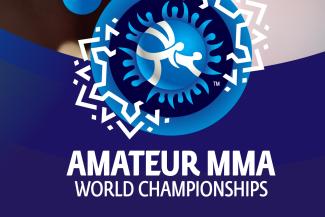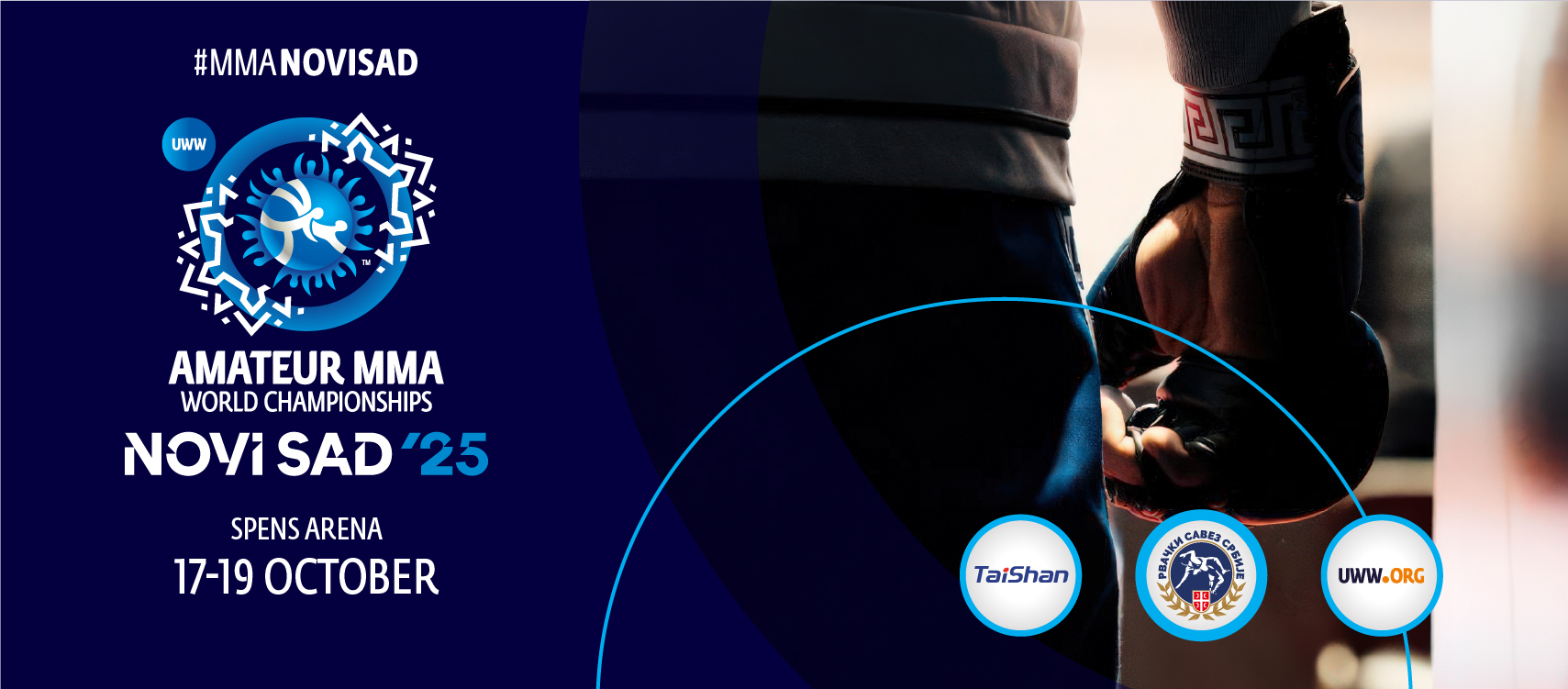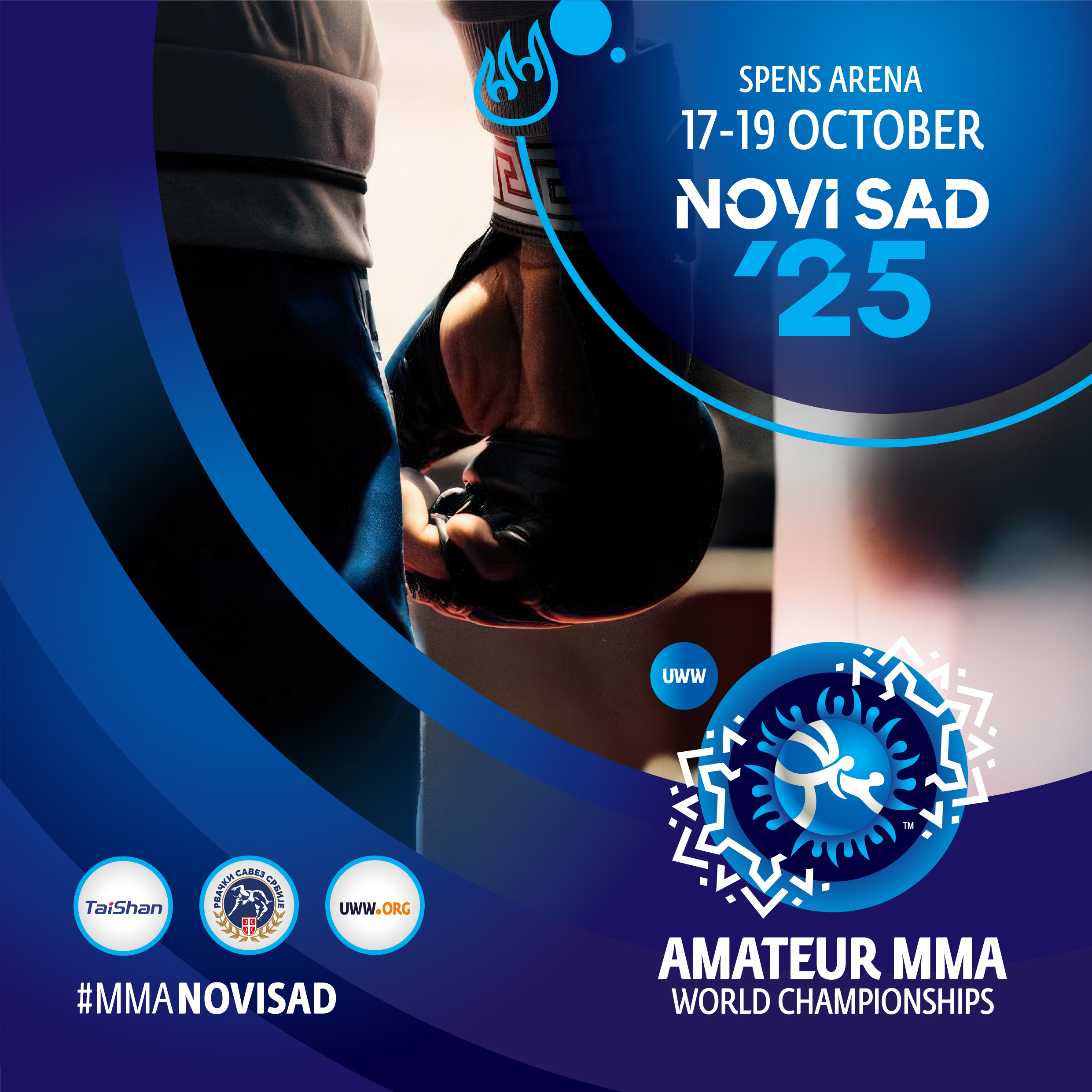Two-time Olympic champ formerly known as Kawai returns in triumph
Sunday, October 16, 2022 - 21:25 By Ken Marantz

YAIZU, JAPAN (October 16) -- As Risako KINJO stood on the top of the medal podium, a warm smile came across her face. It was not for the victory in her return to the mat after 14 months, but for that other part of her life that had kept her to stay away so willingly.
She had caught sight of her mother in the stands across the gym, holding Kinjo's 5-month-old daughter in her arms and waving the infant's hand in her direction.
"There have been so many people supporting me, and that's what allowed me to take the mat today," she said.
To the rest of the wrestling world, she is still known by her maiden name KAWAI, under which she won a second straight Olympic title by capturing the women's 57kg gold at the Tokyo Games in August 2021.
Much had changed in her life since that triumph at Makuhari Messe arena, her name notwithstanding through the marriage to former wrestler Kiryu KINJO. But as the three-time world champion showed on Sunday, her desire and talent for the sport have not altered in the slightest.
Kinjo returned to competition by cruising to the 59kg senior title at the Japan Women's Open, winning three matches without surrendering a point in Yaizu, Shizuoka Prefecture, about 200 kilometers southwest of Tokyo.
"There's a feeling of relief, but also I wish I had a few more matches," said the 27-year-old Kinjo, who capped her golden run with a 9-0 victory in the final over national collegiate silver medalist Miyu NAKANISHI. "It felt like the three matches were over before I knew it."
Kinjo said she had butterflies in her stomach at the start, but actually welcomed that feeling as in reminded her of old times.
"I was really nervous before my first match," she said. "After that there wasn't much time between matches. But it's like there was something nostalgic about the nervousness. After it was over, looking back I thought, 'That was fun.'"
Risako KINJO gets 2 with a counter-lift in the 59kg final against Miyu NAKANISHI (photo by Japan Wrestling Federation)
Kinjo, who had a bye into the quarterfinals, opened with a victory by fall in 51 seconds over Mizuki NAKAHORI. Kinjo did not have to attack, as she spun behind off a Nakahori shot, executed a pair of gut wrenches, then used a leg lock and reverse half-nelson for the fall.
In her semifinal match against Himeka HASEGAWA, Kinjo maintained her defensive wall and scored two go-behind takedowns, then scored another with a snap down. From there, a pair of gut wrenches ended the match 10-0 at 1:23.
In the final against a defensive-minded Nakanishi, Kinjo took a 3-0 lead into the second period from an activity point and a back-door takedown off a single--off her first shot of the day. But in the second period, Kinjo effectively moved Nakanishi around to set up a low sweeping single, then a shrug-and-go-behind. She added a counter-lift for 2 to make it 9-0.
Kinjo's coach Ryo KANEHAMA was impressed with the performance, given the uncertainty going into the tournament.
"That she first of all could get so mentally prepared was really big," he said. "She also showed speed. What we were most fearful of was going the full six minutes, but she was able to keep moving like that. Looking at how she started in the morning, she looked in really good shape."
For Kinjo, the most unfamiliar moment came when her married name was used in the pre-match announcement for the first time.
"When I saw 'Kinjo' on the scoreboard, I was like, 'Oh, right,'" she said. "This is the first tournament that I entered as Kinjo, and I feel honored to have it on the certificate that I received."
The couple announced they had tied the knot on Aug. 27, 2021, and Kinjo gave birth to a baby girl in May this year. She said she started working out again at the end of June, and practiced on the mat the following month. As can be imagined, it was not easy.
"At first, I couldn't even do calistenics on the mat, or a high bridge," she said. "Parts of my body were really stiff. My legs couldn't react to where my eyes were looking. I thought, this is how much it changes after being away 10 months. It was like watching someone else."
Kinjo eventually got back to speed, realizing that the additional burden of raising a child meant changing her approach to training from quantity to quality.
"I have a child and she is the No. 1 priority," Kinjo said. "The amount of practice has been reduced. Before, my time was all mine; now more time is spent on the child. I don't know how much less I'm doing, but to me, it's of a better quality."
Living with her husband in Fukui Prefecture in western Japan, where he is coach at Tsuruga Kehi High School, presents a challenge for Kawai. She takes advantage of every opportunity for a practice spot--sometimes it's with the high schoolers, other times she might head to Tokyo or Aichi Prefecture to train with younger sister Yukako, the Tokyo Olympic gold medalist at 62kg.
Everywhere she goes, she is fortunate to have someone to help out with the baby. In Fukui, Tsuruga has a kids club and sometimes the mother of one of the team members will look after the child. In Tokyo, she knows she can always leave her with her mother, Hatsue, a national team member during her career who almost unfailingly attends all of her daughters' matches.
That support system has allowed Kinjo to join the ever-growing number of Japanese female athletes who are continuing careers after childbirth, which only a few decades ago would have been unheard of. Most noticeable was Ryoko TANI, who won a fourth Olympic medal in judo after giving birth.
Risako KINJO, center, smiles on the medal podium. (photo by Japan Wrestling Federation)
Kinjo became the latest high-profile wrestler to use the Japan Women's Open as the first stepping stone in a return to the sport. It is actually a second-tier tournament with age groups that for senior wrestlers, is a last-chance event to qualify for the All-Japan Championships in December. Kinjo's only previous appearance was in the junior high school division in 2008.
Previously, 2016 Olympic champion Eri TOSAKA appeared at the 2017 tournament as her first competition after undergoing foot surgery, and the legendary Kaori ICHO competed in 2018, having taken two years off after Rio 2016 in a bid for a fifth Olympic gold that would eventually be thwarted by Kinjo.
The question now is, what will Kinjo do from here? The All-Japan in December marks the start of the qualifying process for the 2024 Paris Olympics, which is squarely on Kinjo's radar. It is possible for her to enter at 59kg and later drop down to the Olympic weight of 57kg, or she can go down to the latter now. "It's a secret," she said mischievously.
Of course, whether she does it in December or later, Kinjo will almost surely eventually clash heads with rising star Tsugumi SAKURAI, who won the 57kg world title in Kinjo's absence.
Kinjo takes an esoteric stance when it comes to the emergence of the 21-year-old Sakurai, who also won the 55kg world title in 2021.
"I think it is a good thing for Japan that young wrestlers are being cultivated," Kinjo said. "I don't mean that it would be good for me to lose to them. But for the ones coming up after me, the future is bright. While I keep battling on, the young ones get stronger. They are all rivals, but I think that their getting stronger is a good situation."
Yukako KAWAI talks to the media after withdrawing just before her opening match. (photo by Japan Wrestling Federation)
Younger sister defaults after injury during warm-up
Meanwhile, younger sister Yukako KAWAI was also entered in the tournament, but defaulted her opening match at 62kg after hurting her back while warming up.
"It's not such a serious injury, but we thought it was better to be cautious and not risk making it worse," Kawai said.
Unlike Risako, Kawai has already faced a domestic usurper to her throne, and lost it. In her first tournament after winning the Tokyo Olympic gold, she returned at the All-Japan Invitational Championships last June, but lost in the final to another rising star, Nonoka OZAKI.
Ozaki went on to win the senior world title in Belgrade last month, establishing herself as the one to beat in the race to Paris 2024.
"I've been working to fix the mistakes I make in the June match, and this Women's Open was supposed to be a test of how far I have come," Kawai said. "I think I'm rounding into shape."
Kawai said she finds motivation in Ozaki's world title run.
"I thought she would win the championship," she said. "By winning the title, I think it shows that our domestic matches are the highest level matches in the world. That's motivating me."
Another top wrestler who made the trip to Yaizu was world silver medalist Ami ISHII, who won the 68kg title by beating Kokona TAKADA by fall at the first-period buzzer.
"The reason I entered this tournament, to put it plainly, was to check my technique," she said. "Also, my pre-match preparation has not been good and I wanted to work on that."
In December, Ishii can expect to see a great deal of shifting into the Olympic weight class, with her most notable competition likely to be current 65kg world champion Miwa MORIKAWA.
"If I do what I need to do, the confidence will come," Ishii said. "We'll see how much I can progress in the next two months. If I do everything I need to, it will be like insurance, and winning won't be out of the question."







Share your thoughts.
Comments